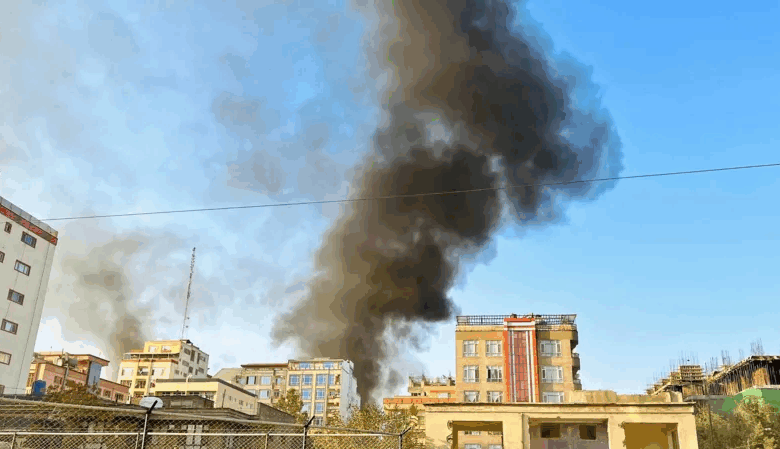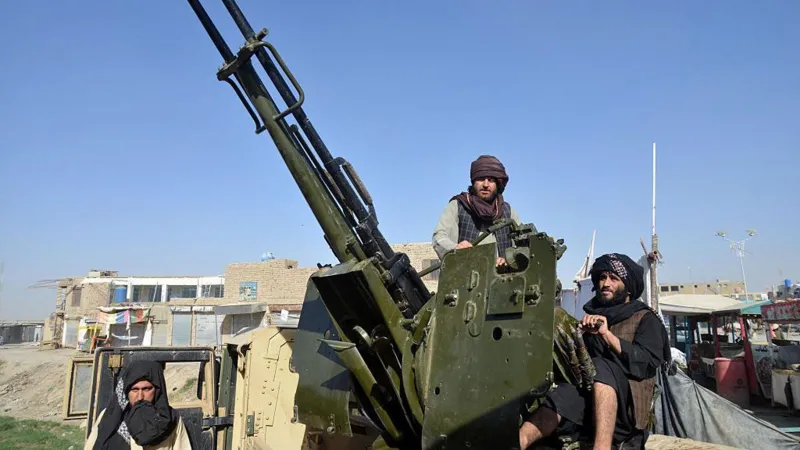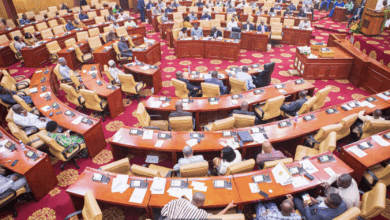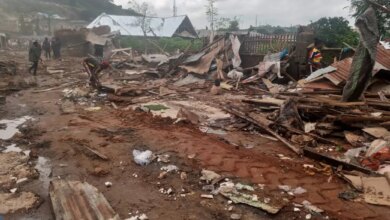Afghan Taliban and Pakistan agree short truce after deadly clashes

Pakistan and Afghanistan’s Taliban government say they have agreed a temporary ceasefire after fresh border clashes and reported Pakistani air strikes on Kabul and Kandahar.
Both sides claimed the other requested the 48-hour ceasefire, which Pakistan said took effect from 13:00 GMT on Wednesday.
Earlier a Taliban spokesman said 12 civilians had been killed and more than 100 wounded by Pakistani firing. Both sides claimed the other suffered heavy casualties. None of the deaths could be independently confirmed.
Violence has flared since explosions rocked Afghanistan last week, which Kabul blamed on Islamabad. The Taliban deny claims they are harbouring militants targeting Pakistan.
Wednesday started with each side accusing the other of initiating deadly clashes.
Pakistan’s military said its forces had killed “15-20 Afghan Taliban” and injured many in Spin Boldak border district. The Taliban government spokesman said numerous Pakistani soldiers had been killed.
Then, later in the day explosions in Kabul and Kandahar ratcheted up tensions.
Pakistani state media reported they were air strikes by the armed forces on targets in Kandahar province and Kabul.
There has been no public acknowledgement from the Pakistani military and no confirmation from the Taliban government, whose spokesman said an oil tanker and a generator had exploded, without linking the blasts to fighting with Pakistan.
The spokesman said Afghan forces had been instructed to respect the ceasefire “as long as no one commits aggression”.

The two sides are not only fighting for the upper hand on the border, but on social media, trying to convince the public that their side is inflicting more damage.
The latest fighting comes after intense border clashes over the weekend, when the Taliban claimed to have killed 58 members of the Pakistani military and Islamabad said it killed 200 “Taliban and affiliated terrorists”. The BBC was unable to independently verify the death tolls provided by each side.
Wednesday’s fighting shattered several days of fragile peace.
Videos purportedly of the fighting and its aftermath have been shared online and on messaging groups, including footage claiming to be of those killed and grainy shots from night vision cameras claiming to be of check posts destroyed. The videos have not been verified by the BBC.
A source in Spin Boldak in Afghanistan told the BBC that clashes broke out on around 04:00 local time (23:30 GMT on Tuesday). Another local in Spin Boldak, who lives about one kilometre away from the border crossing, told BBC the “very heavy clashes continued for almost five hours”.
“I see drones and jets flying over us, some of our relatives are wounded,” they said.
A doctor in one of the hospitals in Spin Boldak told the BBC that he counted “seven bodies and 36 injured brought to the hospital”, including men, women and children.
The situation was “tense” and more casualties were being taken to hospital, he said.
A local Taliban official in Spin Boldak told the BBC that “hundreds of families have been displaced since last night due to the heavy clashes”. He said they were on “high alert” after a few Taliban posts were attacked by Pakistani jets. He added that they had the bodies of two Pakistani military members.
In a separate overnight clash on Pakistan’s north-western border, the Pakistani military said that 25 to 30 Taliban and Pakistani Taliban fighters were “suspected” to have been killed.
The clashes have prompted calls for de-escalation from other countries including China and Russia, as well as a suggestion from US President Donald Trump that he could step in to broker peace.
On Wednesday, Richard Bennett, UN special rapporteur on the situation of human rights in Afghanistan, wrote on X that he was “deeply concerned” by reports of civilian casualties and displacement because of the clashes.
“I urge all parties to exercise maximum restraint, protect civilians, and abide by international law,” he wrote.
Pakistan has long accused the Afghan Taliban of permitting the Pakistan Taliban to operate from their land and fight against the Islamabad government in an attempt to enforce a strict Islamic-led system of governance.
The Afghan Taliban government has always denied this.
DISCLAIMER: The Views, Comments, Opinions, Contributions and Statements made by Readers and Contributors on this platform do not necessarily represent the views or policy of Multimedia Group Limited.
DISCLAIMER: The Views, Comments, Opinions, Contributions and Statements made by Readers and Contributors on this platform do not necessarily represent the views or policy of Multimedia Group Limited.
Source link





